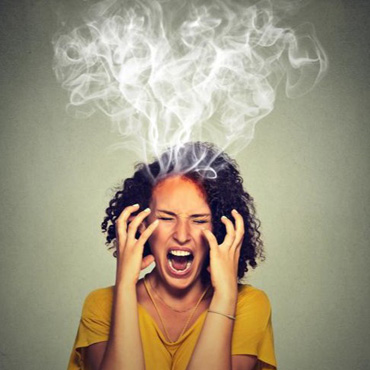Understanding Social Anxiety Disorder in Anxiety Treatment
Social anxiety disorder, commonly referred to as social anxiety, is a mental health condition characterized by an overwhelming fear of social situations and interactions. Individuals with social anxiety experience intense anxiety and distress in social settings, often leading to avoidance behaviors to alleviate their discomfort. Here's how addressing social anxiety disorder is crucial in anxiety treatment:
Defining Social Anxiety Disorder
- Social anxiety disorder is marked by persistent and excessive fear of social scrutiny or embarrassment in various social situations.
- Symptoms may include intense nervousness, self-consciousness, trembling, sweating, rapid heartbeat, and difficulty speaking.
Therapy for Social Anxiety
- Therapy is the primary treatment approach for social anxiety disorder.
- This therapeutic approach helps individuals identify and challenge negative thought patterns and beliefs about social situations.
- Through therapy, individuals learn coping strategies to manage anxiety and gradually confront feared social situations.
Exposure Therapy
- Exposure therapy is a specific technique used within therapy to help individuals confront their fears in a controlled manner.
- By gradually exposing themselves to feared social situations, individuals learn to tolerate and manage their anxiety responses.
- Exposure therapy aims to desensitize individuals to feared stimuli and build confidence in their ability to cope with social interactions.
Social Skills Training
- Social skills training is often incorporated into anxiety treatment for social anxiety disorder.
- This involves teaching individuals assertiveness, communication skills, and strategies for managing social interactions effectively.
- Social skills training helps individuals build confidence and competence in social situations, reducing anxiety and improving social functioning.
Mindfulness and Relaxation Techniques
- Mindfulness practices, such as meditation and deep breathing exercises, can be beneficial for managing social anxiety.
- These techniques promote present-moment awareness and relaxation, helping individuals reduce anxiety and increase emotional resilience.
Medication Management
- In some cases, medication may be prescribed to alleviate symptoms of social anxiety disorder.
- Selective serotonin reuptake inhibitors and serotonin-norepinephrine reuptake inhibitors are commonly used antidepressants that can help reduce anxiety symptoms.
Support Networks
- Building a support network of understanding friends, family members, or support groups can be invaluable for individuals with social anxiety disorder.
- Supportive relationships provide validation, encouragement, and a sense of belonging, reducing feelings of isolation and stigma associated with social anxiety.
Conclusion: Empowering Individuals to Thrive
In conclusion, understanding and addressing social anxiety disorder are essential components of anxiety treatment. Through evidence-based therapies such as therapy, exposure therapy, group therapy, social skills training, and mindfulness practices, individuals with social anxiety can learn to manage their symptoms and regain confidence in social situations. With the right support and treatment, individuals can overcome social anxiety and lead fulfilling lives. If you are looking for expert guidance, consider reaching out to a psychologist near me for comprehensive support.


















